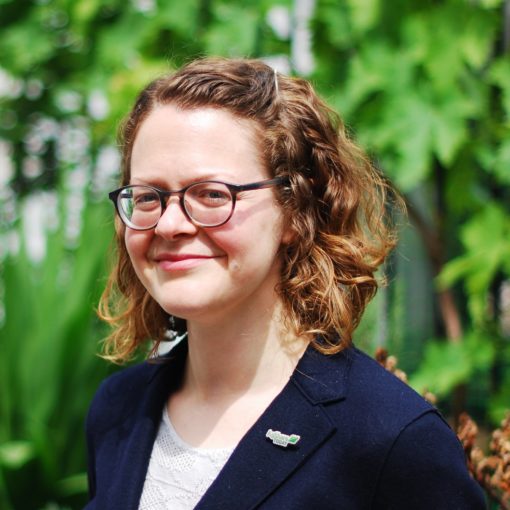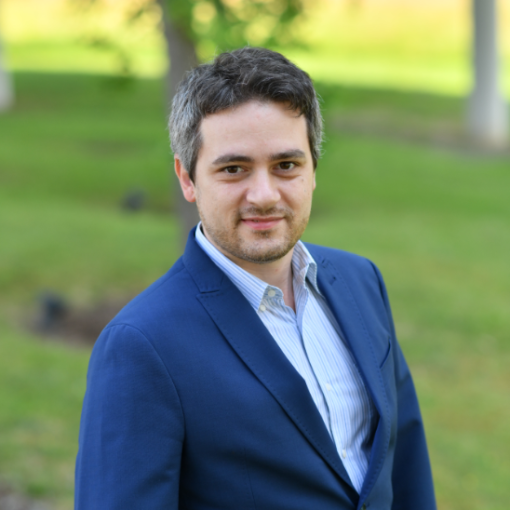PhD, University of Manchester, School of Education, Environment and Development, 2014
| Founder and Director | |
|---|---|
| Periscope Programmes Ltd | |
Year entered into a non-academic position: 2018
Job highlight: Facilitating peoples transition into careers they love
Left academia after: Working as a lecturer for 6 years (3 full-time, 3 part-time)
What’s your background?
I worked in the charity sector as a researcher, project manager and careers advisor. I facilitated research projects around organizational improvement as a freelancer and then a consultant. After and during my PhD I worked as a lecturer and business owner renting VW campervans for self-drive hire, now I run a University training business.
Why did you move away from academia?
I felt I wasn’t able to effect change in the way I wanted, the administrative bureaucracy was limiting my ability to be a good teacher and researcher.
I was also working long hours and wanted more time for outside interests.
Is there anything you miss about academia?
The intellectual community, ability to collaborate with amazing people, greater access to opportunities to dream up interesting projects. Access to journals and events that allow for deeper levels of thinking.
How did you get this job? Did you face any challenges when considering a move away from academia or applying for the role?
At the time I really struggled with losing the solid professional identity being an ‘academic’ provided me. I was also concerned about wasting the investment of the PhD. Understanding how to communicate and be in different professional spaces took some adjustment: I was an intellectual, but I was choosing to utilise this in a different way.
What motivated you to/why did you choose the sector you transitioned into?
It was my vision to create a process through which the post PhD transition could be effectively navigated. I felt a strong desire to create a space for transitioning PhDs who were grappling with the challenges I and many colleagues and acquaintances had experienced.
Did you think you had the skills required for your current position before you started? Were you right?
I don’t come from a business background; I knew I would need to learn but I don’t think I appreciated how more much development would be required in order to create a successful business.
The experience I acquired during the doctorate provided me with the skills to manage multiple projects independently without much input or support from others, to listen to needs, to research opportunities for funding and collaborations, to be curious and speak to people about opportunities while imagining in my mind how these could fit, to apply theory to real world problems, to develop the theoretical framework that sits under several workshop programmes, to apply this to practical activities that enable career progress. To speak publicly with credibility and confidence at conferences and events. These and more!
How did your PhD prepare you for your current job? For example, what were the transferable skills that you developed during your PhD that are most relevant to your current job?
See above.
I didn’t prepare myself so much at the start and then, as challenges arose, I was able to notice how I had become better equipped as a result of the PhD training.
Did you have any preconceptions about your sector that proved to be wrong?
I thought if I left academia, I would be wasting my PhD and that I wouldn’t be intellectually stimulated. This was a concern that took my attention unnecessarily.
The PhD is a hidden superpower, not a ball and chain.
Using it to enhance my life by channeling it towards what felt meaningful was my priority: a creative process well worth the effort.
What is the workplace culture like? Please include comments on work-life balance, flexibility, remote working?
I am currently working remotely. This was a deliberate decision that Covid sped up. It has meant that I have been able to operate from Spain for 8 months and I have recently returned from a few months driving through France, Spain, Italy and Switzerland in a 4×4 with an office/camper conversion. I have learnt how to structure my work and movements to facilitate good quality work. I have a team to support me and current posts include business support, business development, programme management and PhD community support. All are very experienced, taking care of many elements of the business from bookings and finance, to strategic thinking around needs for new workshops. This allows me to focus on developing and improving course content and collaborate with different Universities on interesting projects, as well as work directly with PhDs, early career researchers and research staff through career transition workshops and one-to-ones.
Do people with a PhD frequently get hired in the company/sector?
We work with PhD graduates. In the sector more broadly, within the research training space there are research development managers, trainers, careers advisors, executive coaches – people facilitating the development of others. There are opportunities here.
What are your favourite parts of your job?
The chance to work with amazing minds and facilitate clear thinking in others, from training people to process implementation. To see people do amazing things as a result of this, to develop as a business woman, to work with others around a common vision, and the flexibility to travel.
What are your reflections on your career path?
I am grateful that I made the first jump to set up as self-employed, to think about my options and carve out a role that I enjoy.
Do you have any advice for current graduate students and postdocs considering a career outside of academia?
Be fearless and creative, explore and be curious about potential opportunities: you have huge ability within you, you would not be where you are if you didn’t have the ability to land on your feet. We often doubt our abilities when we are not able to actively see ourselves operating in a new environment. Create an opportunity to participate, even if it is a foot in the door – from this the next step often becomes clearer.
What do you know now that you wish you’d known when exploring a transition?
That academia has an ego; there is amazing value to be found outside the academic space.
Can you recommend any relevant resources, organisations or events that might help somebody new to the sector find out more about it?
Periscope Programmes Ltd is a consultancy that provides career management training for Universities and Doctoral Training Colleges. Training includes two-hour workshops, 6-12 session programmes, 1-hour webinars and 20-minute keynotes.
The vision of this organization is to enable academics at all levels to leverage their skills for careers they love, to support awareness of the diversity of the PhD job market and to strategically plan career management to enable positive and efficient transitions.
We are looking for PhD graduates with experience in supporting career management and community building to work with others to develop our PhD/ECR community. This is a platform where programme alumni have access, share resources, encourage discussion in and around transitioning into or out of academia. This role can provide experience for those interested in working within researcher development.
We are a small nimble organization where it is possible to make a real difference, we are open to conversations and new ways of thinking.
PhDs working with us have developed summaries of PhD career transition research that has supported training materials and conversations with universities. We recognize the value of research, analysis and communication skills developed through the doctorate and seek to further support the development of these through opportunities to collaborate with others around resource development and the communication of these resources. Impact is important to us and we have opportunities for people to provide impact through research and other possibilities in this space.





